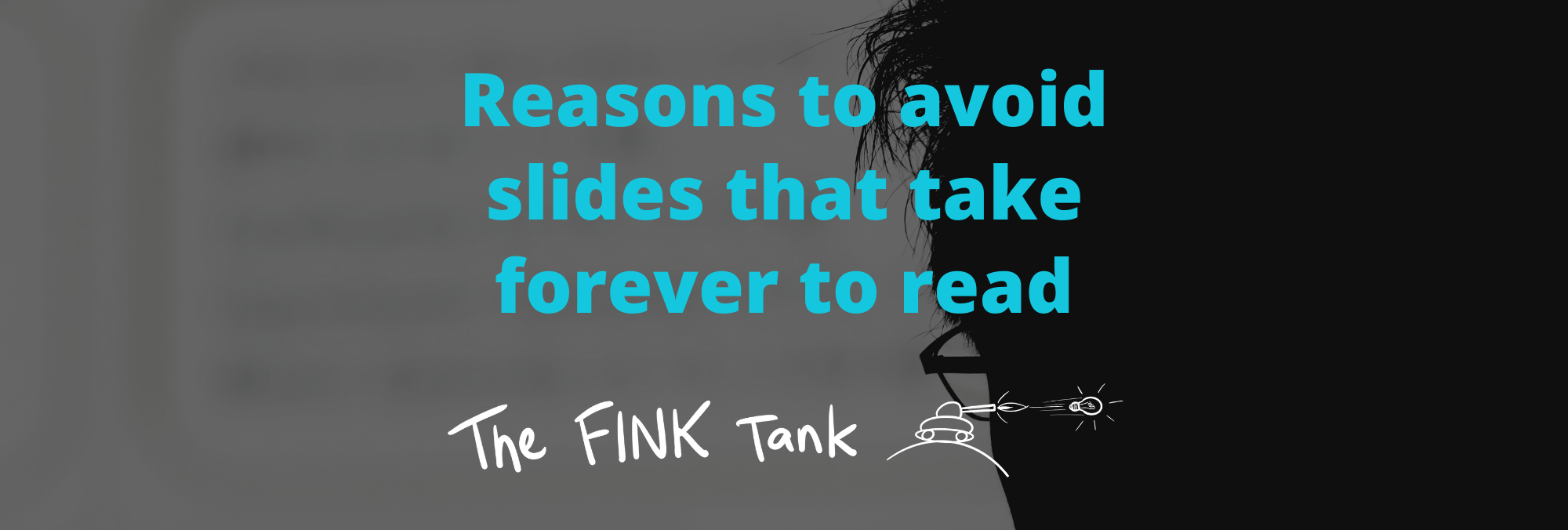Reasons to avoid slides that take forever to read
There are a few reasons not to create hideously information-dense slides:
It's a lot of work! They don't create themselves, and collating all that info and putting it into slides is time consuming.
It makes you a less effective presenter. The best reason to speak to an audience is to give them a chance to get to know you - it's like highly leveraged, extremely efficient networking. For that to work, you need to be you. The audience wants to be exposed to your personality, and the way you think. We don't get that if you're reading from a slide deck. Most professional presentations would be more effective with no slides at all.
It creates a rigid formula of what your presentation is 'supposed' to be... which generates stress in both preparation and delivery because you're constantly thinking "I can't remember what comes next". The audience, of course, has no idea what is 'supposed' to be in your presentation, so if you share your knowledge based on what's been said so far and their reactions to it (including what questions they're asking, if you're comfortable letting them contribute to the conversation) then the speech will simply design itself as you talk. Naturally, and without stress. And it'll be way better than what you scripted, because it'll respond to the audience and include their input.
In all but a few specific circumstances, slides should rarely have more than a single (short) sentence on them, and many slides would benefit from having no words at all; just an image to provide a rich context for your talk.
Please, never put on a slide what could be sent in an email. And please never never read the content of those slides to the audience. (Imagine attending a presentation that was just someone reading emails to you… 🤮)



